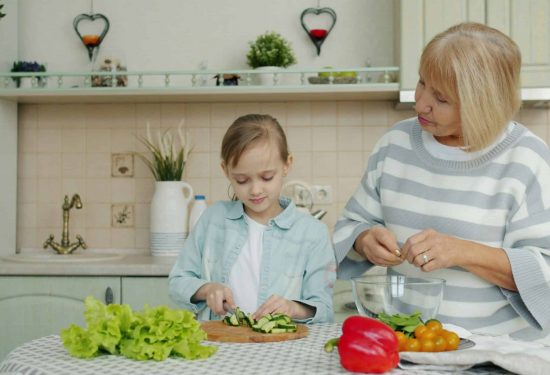Taking care of infants and toddlers while simultaneously managing a small business requires compassion, an accountant’s shrewd business sense, creativity, and frugality in equal measure—not to mention, expertise in child development and infant nutrition. That’s the plate-spinning-while-riding-a-skateboard talent family child care providers must master in order to thrive. Add to these requirements the stresses of an uncertain economy and shifting social pressures and the data show that symptoms of anxiety and depression are more prevalent than they were before the pandemic. According to a July 2023 RAPID Survey Project report, “about 50 percent of child care providers experienced moderate-to-high levels of anxiety,” and as many as 33 percent reported moderate-to-high levels of sad, hopeless, or worthless feelings.”
This Mental Health Awareness Month is an opportunity for providers to reflect on both personal and professional wellness. The path to mental wellness begins with embracing these “healthy me” practices.
Advocate for yourself and other providers
“The tension between caring for and teaching young children and keeping a business afloat financially creates a great deal of stress for most family child care providers,” says Janna Rodriguez, owner-operator of Innovative Daycare Corporation in New York. “In order to manage that tension, you have to set boundaries that ensure you are getting paid fairly, but you also have to advocate for and use all the supports that are available to you. We are early childhood educators and small business owners who are worthy of being in this space, and we need to speak up for ourselves.”
For all providers, the challenge of financial sustainability is exacerbated by the rising costs of basic needs like housing, food, and insurance. Many providers take on a second job just to make ends meet. In addition, a lack of work benefits like sick pay or maternity leave can make the pressures overwhelming.
In 2022, Shalicia Jackson leveraged her master’s degree in social work to open a licensed family child care business in Winston-Salem, North Carolina. Almost immediately, her seven slots were filled with toddlers, including her own son, and she had a growing waiting list. Two years later, she says, “I was already feeling burned out. I got pregnant, and my husband and I wanted to have another child, but I couldn’t find an assistant or a substitute that I could afford to pay when I went to my doctor’s appointments or so that I could take a maternity leave. My son was getting ready to go to kindergarten. It was so stressful. I had to close a number of times in order to take care of my own health, and I knew I would have to do so again for at least six weeks after the baby came. Parents still need to go to work, and I didn’t want to let them down, but ultimately I didn’t have the savings to sustain my program through maternity leave and there wasn’t a support system to help me do that.”
Consequently, when her daughter was born in November 2024, Jackson made the difficult choice to prioritize her own mental health. She closed her business and pivoted to working for the North Carolina Family Child Care Project, where she provides technical assistance to other family child care providers. “In order for children to thrive by 5, providers have to thrive first as people and as professional business owners. They have to be fully present, mentally healthy, and feeling good in order for the kids they serve to really thrive,” she says. So now, instead of caring for children, she’s creating systems to help other family child care providers manage their businesses more successfully.
Rodriguez agrees that self-advocacy makes providers feel both visible and valuable. As a founding member of Community Change Action, she has spoken up for New York family child care providers on issues that would support providers’ mental health, including creating substitute pools, increasing subsidies, and providing affordable health insurance. This year, the organization’s theme is “from the playroom to the podium,” highlighting the importance of “just telling your story to community stakeholders, small businesses, elected officials, and community leaders.” “We are participating in the Day Without Child Care because we know that unless we can do this work and thrive as people, as moms, as community members, unless we sustain the child care sector, everything in our economy falls apart,” she says.
Practice self-care in community
Jackson also continues to lead the Triad Self-Care Support Network, a group she founded to provide a supportive social and professional space for home-based child care providers. Getting together to talk about solutions and advocate for each other and other family child care providers is part of her mental health routine. “We take a moment to just breathe and talk,” she says. “But relying on other people who understand what it means to be a provider, to participate in a solution-focused group creates a sense of solidarity that makes each provider stronger.” The Support Network’s monthly meeting might include a visit to a winery, a Himalayan salt cave, or a nice restaurant, but the healing part is just laughing and crying together, says Jackson.
Child care networks around the country are recognizing the importance of helping providers recognize mental health issues and implement wellness strategies. La Red Latina de Educacion Temprana, a child care network in Minnesota led by Ruth Evangelista, has been working on this issue for years, with the particular focus of providing mental health resources in Spanish. This year, Home Grown’s mini grants to provider networks supported efforts to strengthen providers’ mental health in both Colorado and California through events that taught relaxation techniques, self-care tools, and connections to community mental health professionals. The Family Child Care and Center Enrichment Foundation in North Carolina is offering a conference on Renewing the Mind, Body, and Soul next month. Even though they are surrounded by kids all day, family child care providers can feel quite alone, says Vantoinette Savage, who’s organizing the conference. “The sense of belonging and community you get at these events may be just what you need to validate how important you are in the world.”
Use professional resources and strengthen partnerships
Mental health is especially challenging and important during times of great uncertainty in the broader economy and society. For some providers today, the fear of being challenged by immigration authorities, or of families or staff getting deported, is an added burden of fear and stress. For others, natural disasters like flood and fires have upended lives and businesses, leading to overwhelm, depression, and anxiety. A wellness grant of $10,000 from the Blue Cross and Blue Shield of North Carolina Foundation could not have come at a more pivotal time for The Family Child Care and Center Enrichment Foundation, as it dealt with aftermath of Hurricane Helene, which disrupted child care and traumatized children and families in Western North Carolina. These grants are designed to “support staff in the many dimensions of well-being to help enable their teams to thrive at work and to better fulfill their missions,” according to the foundation’s Director of Early Childhood Jenna Barnes.
Rodriguez notes that such resources are increasingly available to child care providers, and no one should feel ashamed about partnering with professionals who can help.”During the pandemic, people started to recognize that children and families and child care workers really needed more support. Suddenly there were mental health consultants available. Now the stresses have changed, but it’s just as difficult to do this work without losing your grip. In my county, we have a mental health consultant and I call her all the time, for me or for the children I serve. These partnerships can be life saving, and we should take advantage of all the support we can get.”




